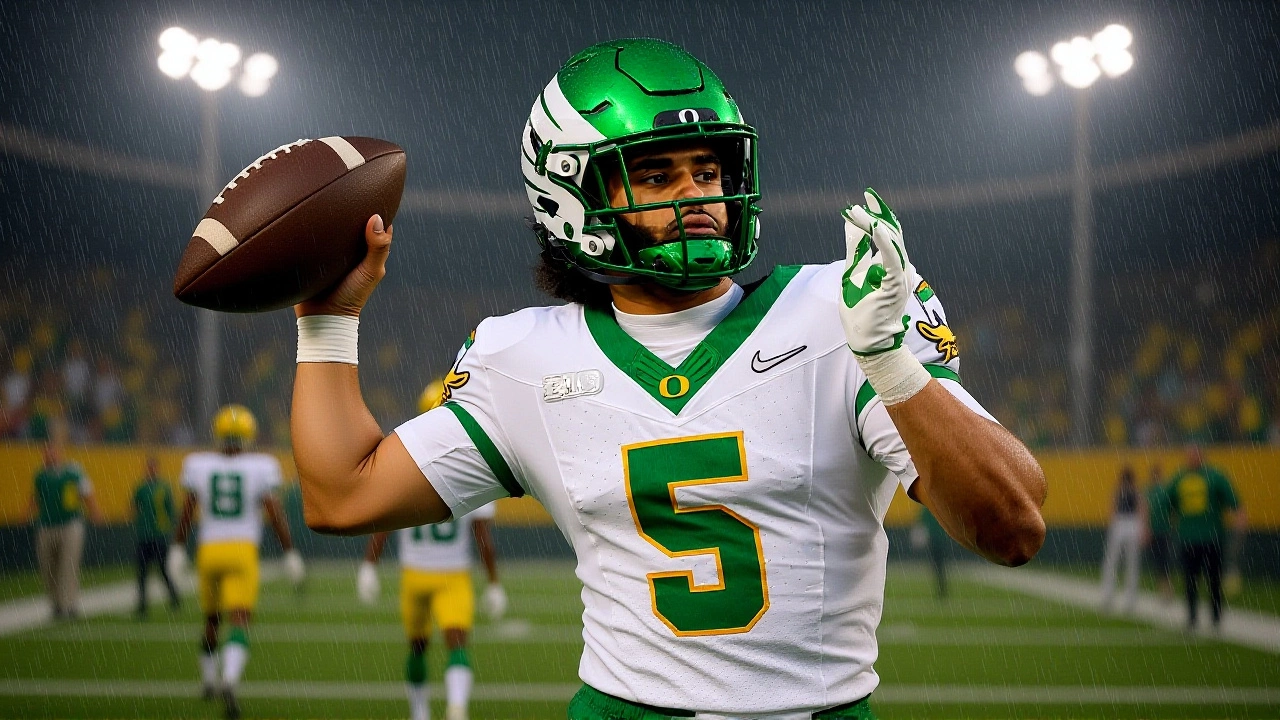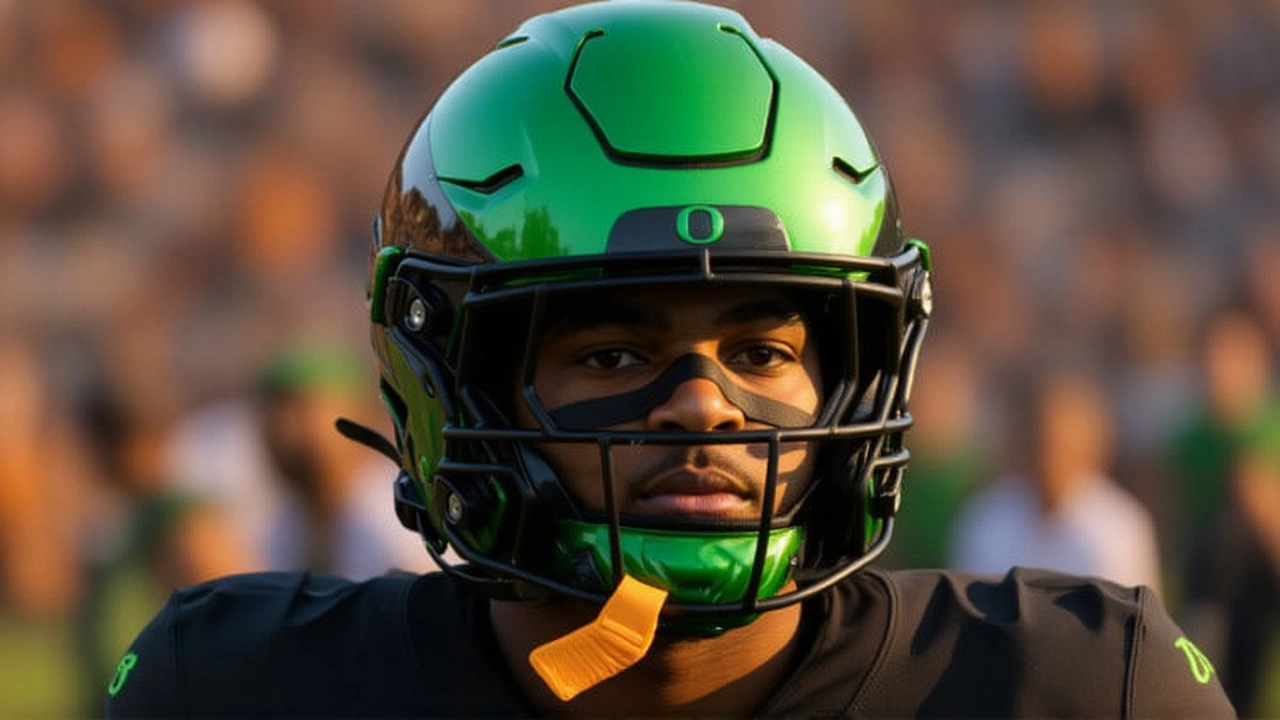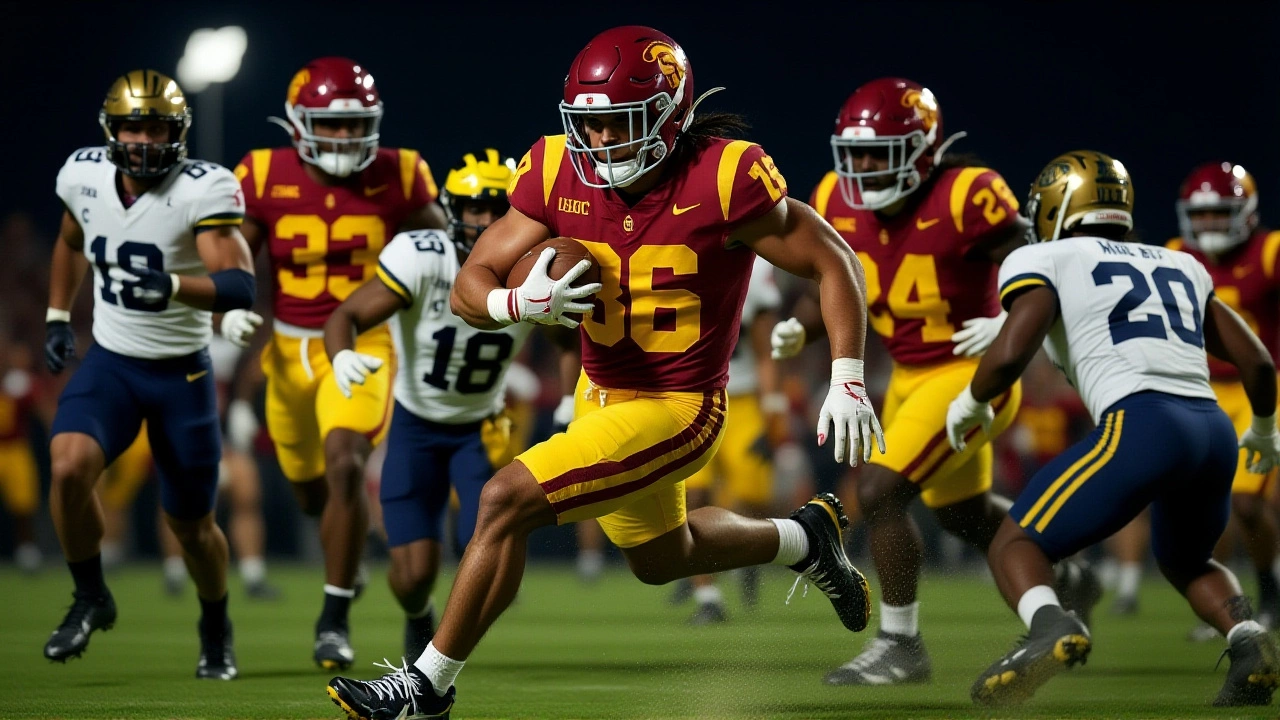The Oregon Ducks didn’t just beat the USC Trojans on Saturday night — they dismantled their identity. In a College Football Playoff elimination gameAutzen Stadium in Eugene, Oregon, Oregon’s defense turned USC’s high-octane passing attack into a series of frustrating dead ends, winning 42-27 in front of a roaring, rain-dampened crowd. The win didn’t just keep Oregon’s playoff hopes alive — it buried USC’s. And it all came down to one thing: the secondary.
The Secondary That Stopped the Storm
USC came in with one of the nation’s most explosive passing games, led by quarterback Jayden Maiava and playmaker Brenden Rice. They’d thrown for 300+ yards in seven straight games. But Oregon’s defensive backs — coached by Andy Avalos, the former Boise State head coach now running the Ducks’ defense — had a plan. They didn’t just cover; they anticipated. When Maiava tried to thread a pass to Rice on second-and-10 at the Oregon 30-yard line with 7:57 left in the second quarter, I. Obidegwu read the route, jumped the throw, and returned it to the 29. That play didn’t just stop a drive — it broke USC’s rhythm. "We knew they’d come after us," Obidegwu said afterward. "They think they can throw over anyone. We made them pay."The Plays That Changed Everything
USC did manage to move the ball — five completions went for 24 yards or more, including a wild trick play where Rice, the receiver, tossed a backward pass to Tanook Hines for a 24-yard touchdown that tied the game at 14. It was the first time a USC receiver had thrown a TD pass since Tyler Vaughns in 2018. But Oregon responded with precision. Dante Moore, the Ducks’ junior QB from Los Angeles, threw for 257 yards and two touchdowns, finding tight end Kenyon Sadiq — back from injury — for two scores. Running back Noah Whittington, a fifth-year senior from Portland, added 104 yards and a touchdown, then sealed the game with a 17-yard burst late in the fourth after USC had cut the lead to 35-27. The defense made the difference. After USC’s defense intercepted Oregon’s Kennedy Urlacher (yes, the USC linebacker — a nod to his famous father, Landon) and drove to the Oregon 8-yard line, coach Lincoln Riley made a baffling call: two straight runs by Rice. Both were stuffed. "That sequence," Riley admitted post-game, "was the defining moment in a lot of ways. We had the field position. We had the momentum. And we didn’t trust our offense to get it done." Then came the dagger: Malik Benson, a junior return specialist from Portland, took a USC punt and turned it into an 85-yard touchdown. The crowd erupted. The Trojans’ offense never recovered.Senior Day, Senior Impact
It was Senior Day at Autzen Stadium. Oregon celebrated its graduating athletes at Matthew Knight Arena before kickoff — and the seniors delivered. Linebacker Bryce Boettcher, a redshirt senior from Bend, scored on a 1-yard dive just before halftime. Sadiq, returning from a midseason injury, caught six passes for 72 yards and two touchdowns. Even freshman Jordon Davison, a San Diego native, punched in an 11-yard TD. "This team didn’t just play for the win," said head coach Dan Lanning. "They played for each other. For the guys who’ve been here four, five years. That’s what this was about."
What This Means for the Playoff
Oregon (10-1, 7-1 Big Ten) now sits at No. 7 in the College Football Playoff rankings — a spot that could vault them into the top four if other results fall their way. They’re one win away from hosting a first-round playoff game. Their remaining schedule? A home game against No. 22 Washington on December 7 — the same day the final rankings are released. If they win, they’re in. For USC (8-3), the loss is devastating. They’ve lost three of their last four, including two to ranked teams. Their offense, once feared, now looks predictable. Riley’s reputation as a play-caller took a hit. The Trojans will likely end up in the Rose Bowl — a nice consolation, but not the championship run they envisioned.Behind the Numbers
- Oregon held USC to 3-for-12 on third down - The Ducks forced three punts in the second half - USC’s five completions of 24+ yards were offset by four sacks and seven tackles for loss - Oregon’s defense allowed just 10 points after halftime - The 85-yard punt return by Benson was the longest in Autzen Stadium history
What’s Next?
Oregon’s final regular-season game against Washington will decide everything. A win, and they’ll be hosting a playoff game. A loss, and they’ll likely fall to the Sugar Bowl. Meanwhile, USC’s season ends with questions: Why did Riley abandon the pass? Why didn’t the offensive line protect Maiava better? And how did a team that scored 45+ points in five games this season get shut down by a defense that entered the game ranked 42nd nationally? The answer? Sometimes, it’s not about talent. It’s about execution. And on Saturday night, Oregon executed. USC didn’t.Frequently Asked Questions
How did Oregon’s secondary neutralize USC’s passing attack?
Oregon’s defensive backs, led by I. Obidegwu, used aggressive coverage and pre-snap reads to disrupt USC’s timing. They jammed receivers at the line, forced Jayden Maiava into hurried throws, and capitalized on three critical turnovers — including a 78-yard interception return that shifted momentum. The Ducks also blitzed less than usual, opting instead for disciplined zone coverage that clogged passing lanes and forced USC into check-downs.
Why did Lincoln Riley call two running plays at the goal line?
Riley later admitted he wanted to establish power and avoid a risky pass in the red zone. But USC’s offensive line was already struggling, and Brenden Rice — a receiver — was stuffed on both attempts. The decision ignored USC’s strengths: aerial creativity and play-action. Critics argue it reflected a loss of confidence in their offense, a stark contrast to Riley’s reputation as an offensive innovator.
What’s the significance of Malik Benson’s 85-yard punt return?
It was the longest punt return in Autzen Stadium history and the first 85+ yard return by an Oregon player since 2014. Benson, a Portland native, turned a routine punt into a momentum-swinging touchdown that stretched Oregon’s lead to 35-14 and effectively ended USC’s comeback hopes. It also marked the third special teams touchdown Oregon has scored this season — a key factor in their rise to No. 7 in the CFP rankings.
How does this win affect Oregon’s playoff chances?
Oregon now sits at No. 7 with a 10-1 record. A win over Washington on December 7 would likely push them into the top four, especially if other contenders like Ohio State or Alabama lose. With a strong defense, a balanced offense, and home-field advantage, the Ducks are now legitimate playoff contenders — a dramatic turnaround from their 3-2 start to the season.
Is this the end of Lincoln Riley’s USC era?
Not necessarily, but it’s a major setback. Riley, who led Oklahoma to four straight Big 12 titles, was hired to elevate USC to national prominence. Three straight losses to ranked opponents, including this one, raise serious questions about his ability to adapt to the Pac-12’s evolving competition. If USC misses a New Year’s Six bowl, pressure will mount — especially with Oregon and Washington surging.
Why was Kenyon Sadiq so important to Oregon’s offense?
With Oregon’s wide receiver corps thin due to injuries and transfers, Sadiq — a 6’5" tight end — became the primary target. His return from a midseason hamstring injury gave Dante Moore a reliable red-zone weapon. His two touchdown catches came on critical drives, and his blocking opened lanes for Noah Whittington. He was the offensive anchor Oregon didn’t know it needed.
